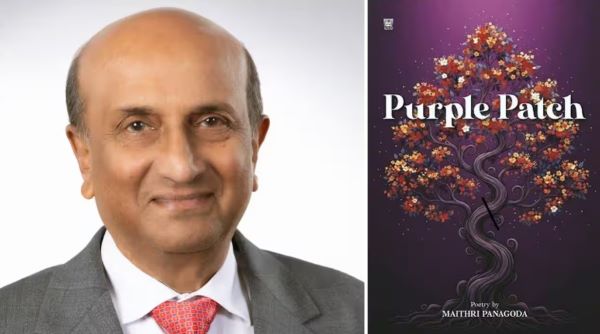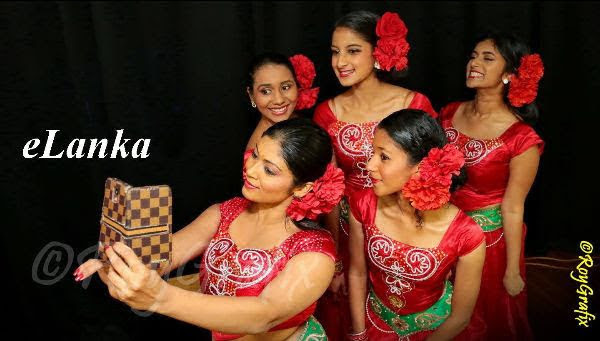The Value of Elitism Today
Source:Thuppahis
James Marriott, in The TIMES, 27 October 2025, where the title is “Why elitism is key to democracy’s survival”
It is unfashionable to favour a superior expert class, yet its destruction has flooded our society with misinformation
I am inclined by temperament towards the innocuous middle ground of most issues. So, I was pleased to discover, on a panel discussion a couple of weeks ago, that I had embarked on an inadvertent brush with the glamour of contrarianism. Lauding the virtues of that much-despised institution the “mainstream media”, I noticed my remarks were being met with … perhaps booing oversells the drama of the occasion. Let us call it a dark and audible murmur of dissent.
I should not have been surprised. Few nowadays are sympathetic to the notion of a superior expert class. Anti-elitism is the fashionable pose of our time, adopted almost as readily by desperate technocrats (Sir Keir Starmer is prone to the odd disapproving bleat about Westminster) as by populists.
Elitism is just a bad look: snobbish, anti-egalitarian, undemocratic. Every modern politician must find an establishment to fight (or pretend to fight): old boys’ clubs, woke cabals, civil service cronies.
But increasingly I’m persuaded that elitism is a profoundly democratic sentiment. It may be my most unfashionable opinion.
We’re all familiar with the popular notion that social media has “democratised” our discourse. The voiceless have been given a voice. Experts have been dethroned. Information and debate is no longer controlled by a self-interested and self-satisfied elite of journalists and academics. If you want to address the nation, you no longer have to get past that intimidating figure, the comment editor of The Times.
But as the political philosopher Dan Williams points out, a more democratised discourse can be radically anti-democratic in its effect. More people can speak, true. But the resulting proliferation of ignorant, wrathful and inexpert voices means that ordinary people are increasingly poorly informed. Brigitte Macron is a man. Barack Obama is a lizard. Such stuff would have puzzled even the Daily Sport in its Nineties heyday. Online it’s rife. The result is that a smaller and smaller minority of people — almost invariably wealthier and better-educated newspaper readers — have access to reliable information about the way their country really works. Not so fair and democratic.
The American essayist Richard Hanania recently pointed out that before America’s experiment with Maga populism there was a gravely undemocratic mismatch between popular views on vaccines (as many as 25 per cent of Americans fear they cause autism) and elite views on vaccines (20 years ago, virtually no politicians were antivaxers). In the anti-elitist Trump era, politicians are much better aligned with popular views on the subject.
Technically, the situation is now more democratic: people’s opinions are better represented by their politicians. But in another, more important sense, it is less democratic. More people (predominantly poorer, less-educated people) are catching measles. Meanwhile, the portion of the American population still plugged into elite discourse (again, mainly the educated and the wealthy) are less affected by antivax misinformation and therefore less likely to catch it.
The obvious problem with the democratisation of our discourse is that popularity is a poor test of ideas. It was not that the old liberal elite was more intelligent or virtuous. But they were competing for prestige in a system that, for all its faults, ascribed social status to rationality as well as to mere name-recognition. If you wanted to run for parliament, host a BBC programme or be welcomed rather than snubbed at a north London dinner party, it helped to be popular. But you were also strongly motivated to subscribe to a tolerant and sane “elite” world view.
It’s remarkable how quickly people drift off into the irrational when their careers no longer depend on elite approval. The former BBC presenter Neil Oliver now inveighs against vaccines and “one-world government”. A thriving online fandom means he no longer needs to impress TV commissioners to get another series of Coast. We’ll miss the old elite when it’s gone.
If I had really wanted to annoy my audience the other weekend — to turn the mutterings into hisses — I could have suggested that democracy as we know it is a kind of elite ideology, at least partly the creation of 19th-century bourgeois liberals. Even now, a century after the franchise was extended to the entire adult population, democratic government is not a universally popular idea. A recent survey infamously discovered that about a quarter of the population favours “a strong leader who doesn’t have to bother with parliament and elections”.
Support for democracy is stronger among old-fashioned political and media elites than on “democratised” social media. Anti-democratic “thinkers” such as the preposterous Curtis Yarvin (who argues that America should be ruled by an absolutist monarch) would never have got within a mile of the op-ed pages of an old-fashioned newspaper. Online, he’s a celebrity.
And even if only a minority of internet users are actively enthused about autocracy, many more of them fail to respect the virtues of tolerance, respect and free speech that were once considered fundamental to democratic discourse. It may turn out that liberal principles like respecting an enemy’s right to speech are fundamentally counterintuitive to most people and that we needed an elite to impose them.
None of this, of course, is to say elitism is remotely a perfect principle. Only that it’s becoming obvious that it’s preferable to anarchy. Elites are callous, self-serving and snobbish. They are prone to the stupidity and errors of groupthink. Perhaps we need to paraphrase Churchill and call elitism the worst possible idea except for all the others. Not an inspiring argument. But I believe it. Don’t boo.
&&&&&&&&&&&&&
A NOTE: This item was sent to me by my Aloysian mate of yesteryear, Tommy Fernando, who is resident now in the UK






















